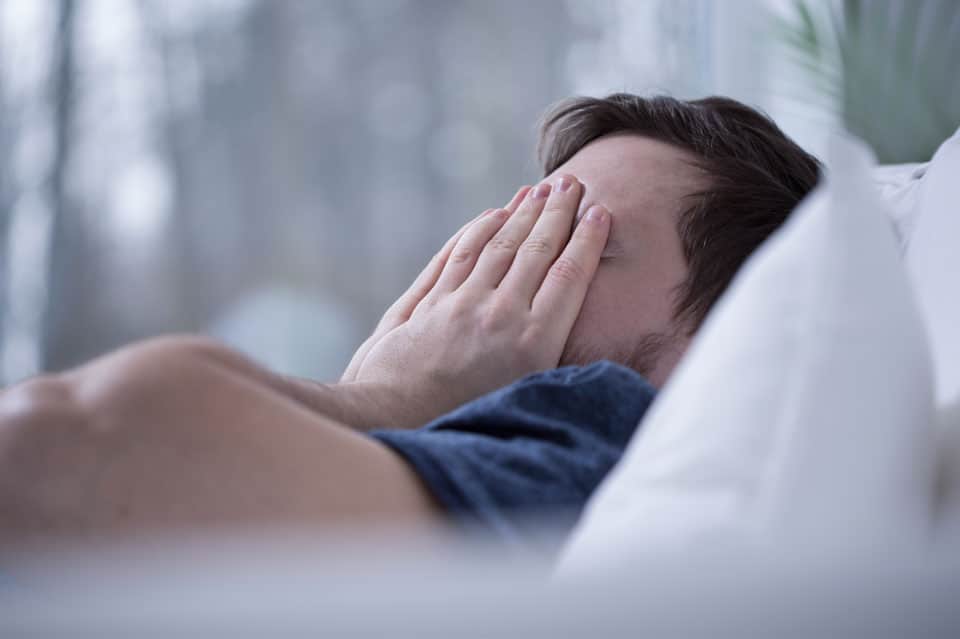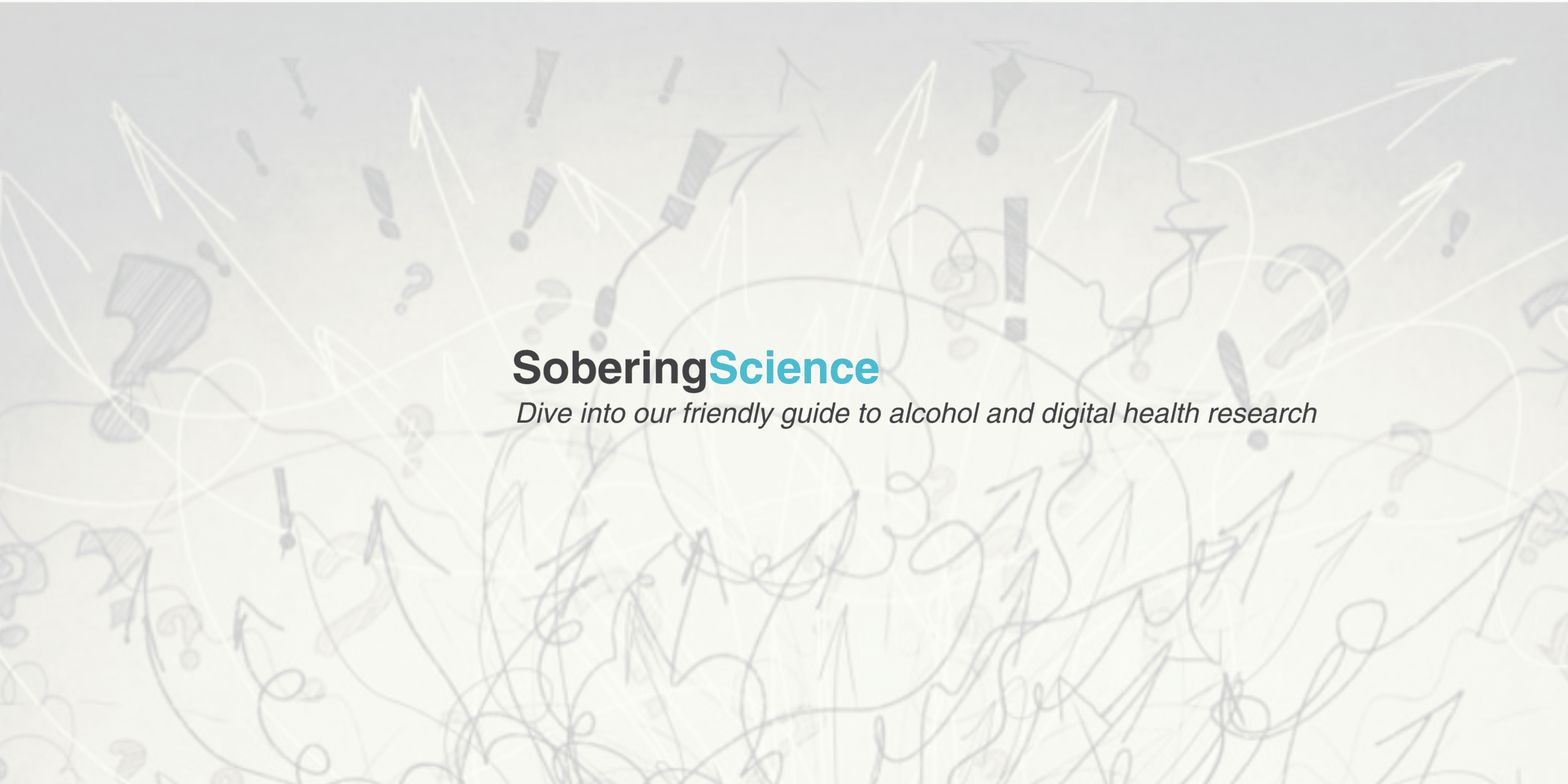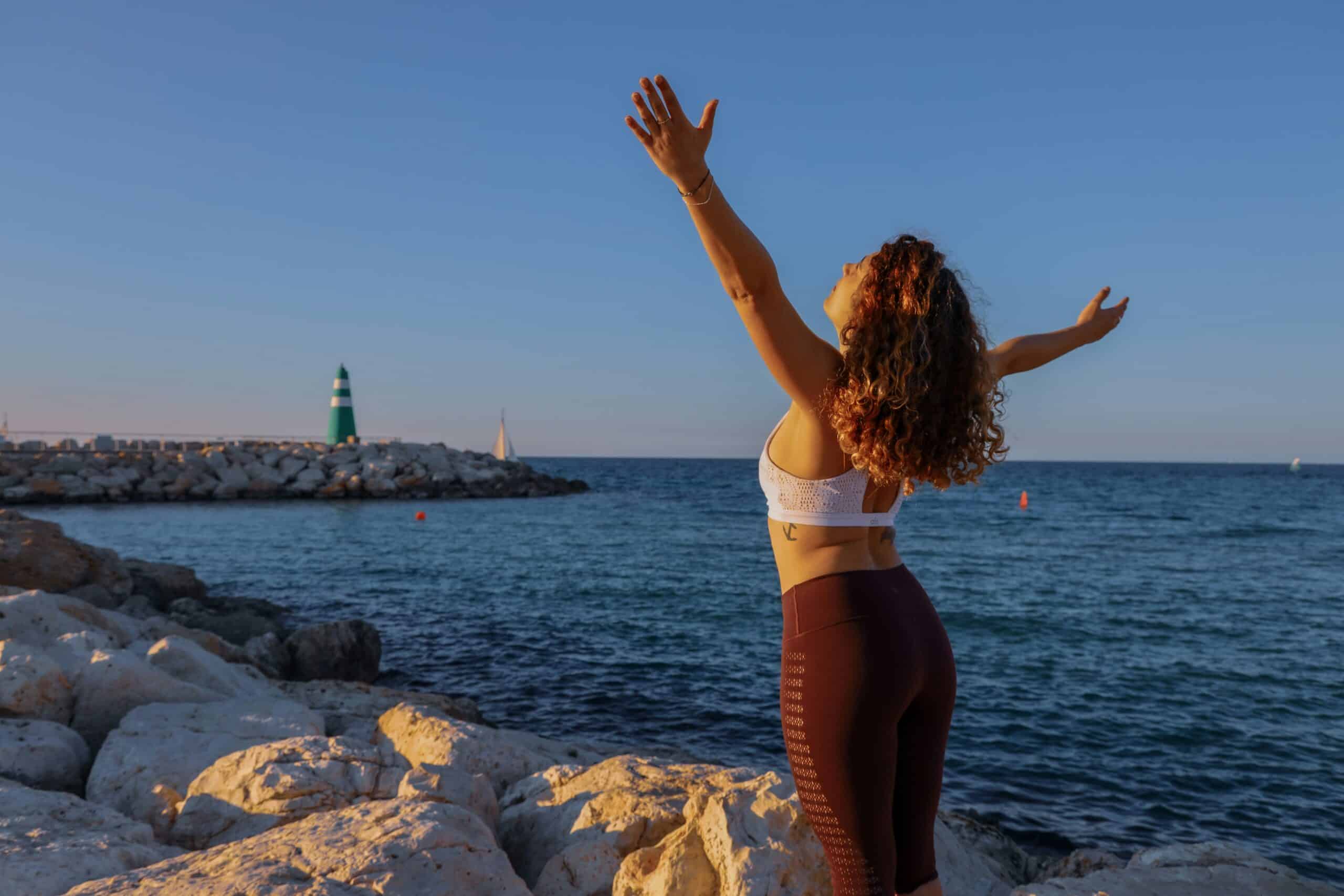
Is your alcohol use affecting your sleep?
For many people on the Daybreak feed, there is a discussion about the role that alcohol plays in sleep – some feel that it helps them get to sleep, while others feel that they are much less fatigued when they stop drinking for a while. It is a great topic to explore, since as we know, quality sleep is paramount to our physical and mental functioning.
So, what exactly is happening with alcohol and sleep? Firstly, some ways that our sleep can be impacted by alcohol use are:
- We can find that our sleep is disrupted if we stop drinking or cut back (as we may have been relying on alcohol to get to sleep).
- We might wake up in the early hours of the morning wide awake, after drinking in the evening.
- We might feel tired after an evening of drinking, feeling as if we are not properly rested despite getting more than eight hours.
In some of our conversations with members, concerns about sleep disruption can be a big part of alcohol use – there can be a belief that alcohol helps them get to sleep and if they stop drinking or cut back, they might miss much-needed sleep – or that alcohol is somehow assisting the sleep process.
As you might have suspected, however, science says something vastly different. A large body of research into alcohol and sleep indicates that alcohol is detrimental to sleep and that, while we might notice some disruptions in sleep and rest when we cut back or stop, reducing or cutting out alcohol entirely is likely to have significantly positive effects on the quality of our sleep, long-term.
Why don’t I feel well rested after a night of sleep if I’m drinking?
Consuming alcohol inhibits REM (rapid eye movement) sleep – the more alcohol we consume, the less REM sleep we get. REM sleep is the deep and restorative ‘quality’ sleep that helps us to feel rested and alert.
High doses of alcohol can affect our sleep, increasing sympathetic activity in our brains and disrupting our sleep, particularly during the second part of the night.
Alcohol can have a stimulating or sedating effect depending on how much, and when, we drink. In fact, even drinking in the late afternoon or up to six hours before bedtime can disrupt our sleep, even if the alcohol is no longer in our bloodstream.
Like many other short-acting sedatives, ‘rebound’ effects can occur and we can experience heightened arousal 2–3 hours after blood-alcohol concentrations fall close to zero; this can be experienced as those early morning awakenings where it is hard to return to sleep. This ‘rebound’ effect can also be associated with intensive dreaming or nightmares – contributing to disrupted sleep.
An interesting fact is that we can quickly develop a tolerance to alcohol’s effect on our sleep, after only 3–9 nights of use. This means that while we are not necessarily noticing these sleep disruptions, the quality and pattern of our sleep cycle is being affected each time we drink alcohol, and this becomes our ‘new normal’.
But alcohol helps me get to sleep!
Many people will describe using alcohol to get to sleep assuming it is a low-risk-, cost-effective and convenient sedative. Some studies have found that, for people with insomnia, up to 15% have used alcohol for longer than four weeks to help them sleep.
The evidence indicates that with regular use, alcohol quickly loses its effectiveness, while unfortunately still retaining its sleep-disturbing properties. Many people using alcohol to get to sleep, experience disturbances later in the night or early morning – when we are meant to be getting high-quality REM sleep.
So, what is the evidence for this?
Several studies (Roehrs & Roth, 2023; Schwab, 2020) found that those who used alcohol to help them sleep actually felt sleepier during the day than those who didn’t, indicating that while they may feel that alcohol is helping them to sleep (improving mood and relaxing them), it is actually affecting the quality of the sleep they are getting, resulting in problems the next day with alertness, concentration and fatigue.
Additionally, when we are sleep deprived, we are much more vulnerable to the sedative effects of alcohol – but even well-rested people find that there is an impairment in reaction time and performance, even several hours after blood-alcohol concentration drops to zero.
According to the research, while some people are believing that alcohol may have a temporary effect on their mood (making them feel more relaxed and helping them to unwind), while helping them to fall asleep at night, it is in fact throwing a spanner into the ability to feel refreshed and rested after a night of sleep. We might be tricked into feeling relaxed and calm as we go to sleep, only for our brains to reactivate our waking cycle again, once the alcohol wears off in the early hours of the morning.
Ok, I get it – but then why do I sleep poorly when I cut back/stop drinking?
Research into this phenomenon suggests that when people who are heavy drinkers stop drinking, they can experience significant disruptions in their sleep – finding that they are struggling to get to sleep, stay asleep, or feel well rested after sleeping. This is to do with the withdrawal effects and our brains adjusting to not having alcohol as a regular sedative – for heavy drinkers, their tolerance to alcohol would have built up over time. Research shows that, for many heavy drinkers, while they are aware that alcohol disturbs their sleep, they feel they need it to get to sleep. As we know, alcohol use perpetuates sleep disturbance, which then leads to more alcohol use, making it hard to escape the cycle.
As you can imagine, this presents a huge barrier for many people who are wanting to stop drinking or cut back, but who are really concerned about suffering from this disruption in sleep (even if it is only temporary). In fact, sleep problems are a major predictor of relapse for people who are in early recovery, and these need to be addressed as soon as possible to give the person the best chance of staying alcohol free. Waking up regularly through the night, having trouble getting to sleep, and getting too little sleep are common issues experienced by people in these early stages.
For many people who have stopped drinking, these kinds of challenges with sleep can persist for months. Fortunately, the evidence indicates that, for most people, sleep quality improves slowly over time. As our brains slowly adjust to the ‘new new normal’, the patterns of sleep return to normal and we begin to see a re-emergence of REM sleep and a reduction in sleep problems such as early morning awakenings.
So, what can I do to address this?
As you can see, the relationship between sleep and alcohol is complex, but it is a good idea to get some professional support for sleep issues if you feel they are contributing to your alcohol use. Or, as we have discussed, if you feel that one of the things that is holding you back from changing your alcohol use is a concern about your sleep being affected.
For many Daybreak members, even just being aware of the effect that alcohol has on our sleep can be useful – and being able to break that alcohol-sleep-alcohol pattern can make a huge difference in terms of how we are feeling and functioning.
If sleep is an issue for you, we would recommend that you visit your doctor for some support with managing alcohol and sleep, and working with them to ensure that as you reduce the amount of alcohol you are drinking, any sleep issues are managed and addressed. As mentioned, this can be a big barrier to change in many people, since we need to be able to sleep to function and go about our daily lives.
So, what do I need to remember?
Alcohol does not help us sleep better! In fact, while we may find it easier to go to sleep after drinking, the quality of sleep we have after drinking is much poorer even if we have only had a small amount to drink.
As the sedative effects of alcohol wear off, we can experience a ‘rebound’ effect in which we can become alert 2–3 hours after our blood-alcohol content returns to zero, often in the early hours of the morning.
We may feel that we need alcohol to get to sleep, but after a few weeks of not drinking, most individuals are able to return to normal levels of sleep quality and can fall, and stay, asleep without the aid of alcohol.
Individuals who are having sleep issues after they stop drinking may need support, as they are more likely than others to return to drinking, believing that they need alcohol to get proper sleep.
If you would like more information, or some personalised advice about alcohol use please check out our online resources on the website and join our online peer community at Daybreak, our alcohol behaviour change app.










I have worked out the complex detrimental relationship between alcohol and sleep. It’s comforting to understand the science to enable informed decision making. I love my alcohol free restful sleeps the more I can string together the better and understand the consequences when I consume alcohol.
I developed mostly insomnia over the last few years of my almost daily drinking – about every other night I would wake up in the early morning hours and just not find any sleep for an hour or an hour and a half. Wide awake and at the mercy of a perpetual carousel of thoughts. If I then fell asleep at some point – the alarm clock usually rang much too early. Accordingly tired, bad-tempered and demoralized I often got up in the morning and started the day. How sad that often was.
Yes – probably exactly the described “rebound” effect. But the craziest thing about it was that for years I thought this was normal, was due to age or had something to do with my job. I didn’t see alcohol as the cause, at best I vaguely suspected it – and: I probably didn’t WANT to see it year by year…
At some point I finally stopped drinking – that was almost four years ago. Yes – it actually took a few weeks for all my physiological systems to settle down again … It was like a small miracle for me – because since then I sleep like a child again. I am very grateful for that.